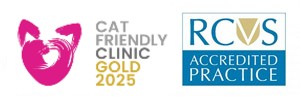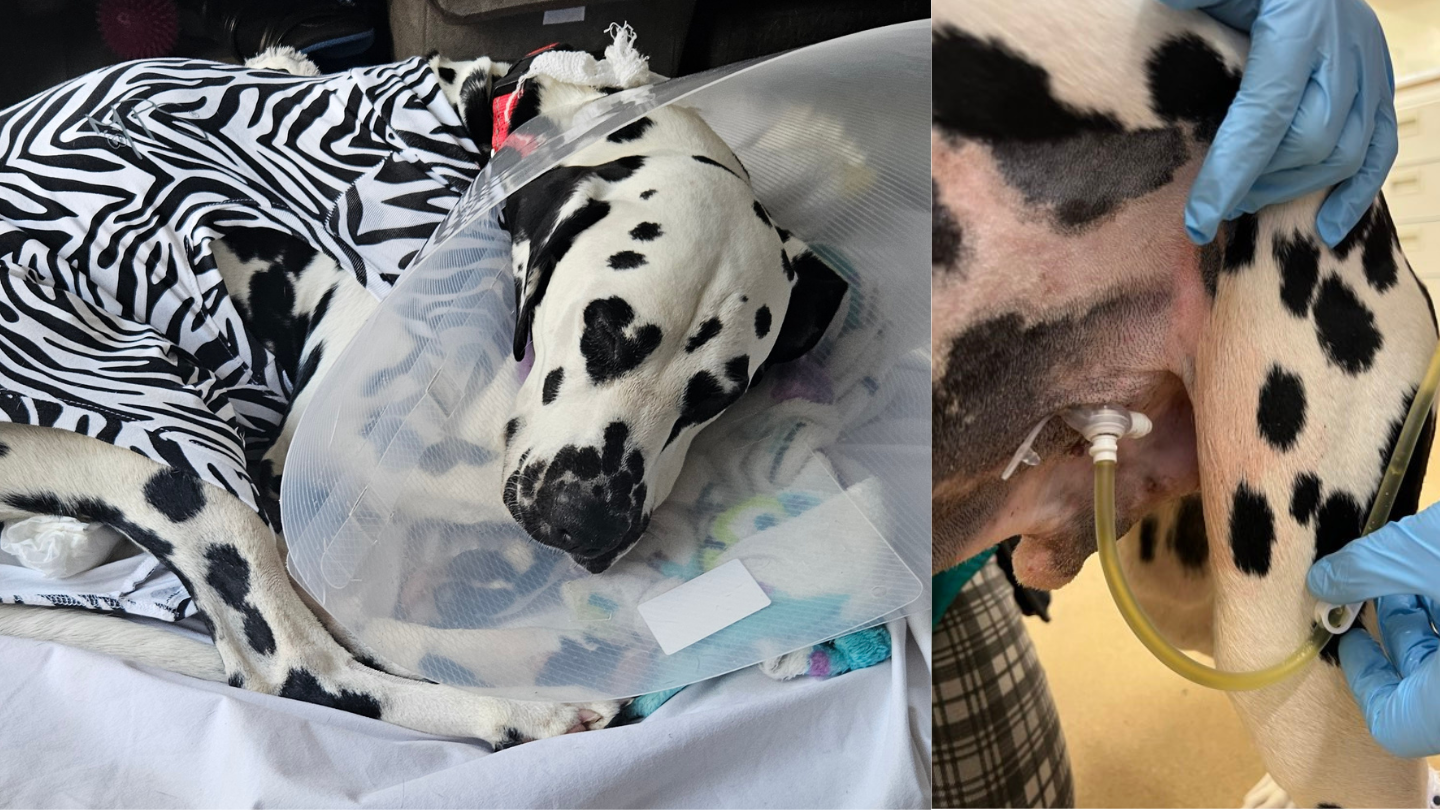Submitted by J. Hudson on Thu, 20/06/2024 - 12:54
When Rollo arrived at the Queen’s Veterinary School Hospital struggling to urinate, our dedicated internal medicine and diagnostic imaging teams sprang into action. Their investigations revealed that Rollo’s bladder was holding nearly 10 times the normal amount of urine (2.5L), a serious condition requiring immediate attention.
To allow Rollo to go home he had a cystostomy tube placed which connects his bladder to the outside world and allowed his owners to drain his urine with a syringe. Historically, this would have required a surgical procedure to open his tummy and place a long tube from his bladder. In Rollo’s case for the first time in our hospital, a low profile cystostomy tube was placed using a newly described, minimally invasive technique, that involved only a tiny cut in his skin. This ground-breaking approach is based on the research by Lea and Kelly (2024) and represents a significant advancement in veterinary care. Rollo is recovering well from the procedure, tolerating the tube well and his owners have learnt to use it at home without any concerns. Rollo’s urination is already improving but may take a few months to get better, his cystostomy tube allows him to spend this time recovering at home.
Leading the Way in Urological Procedures
This case highlights our commitment to pioneering new techniques to achieve the best outcomes for our patients. At The Queen’s Veterinary School Hospital, we offer a comprehensive range of urological procedures, including:
- Cystoscopy (in male and female dogs)
- Cystoscopic guided laser ablation of ectopic ureters
- Cystoscopic guided laser debulking of urothelial cell carcinomas
- Urethral stenting
- Ureteral stenting
- SUB (Subcutaneous ureteral bypass device) placement
- Percutaneous cystolithotomy (PCCL)
Our team's expertise and dedication ensure that we remain at the forefront of veterinary medicine, providing the highest standard of care for our patients.
For more details on our services or to refer a case, please contact us at: hospital@vet.cam.ac.uk or phone us on: 01223 337621.



